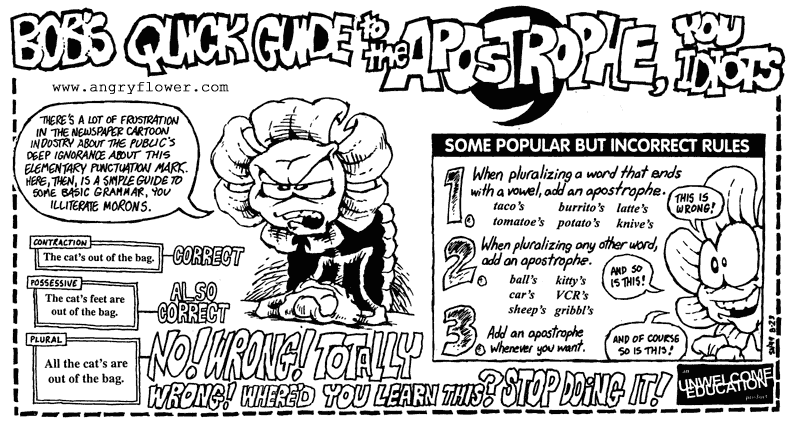bekibutton
Technical User
I've just started studying Latin and Ancient Greek, and I'm totally puzzled by most of the new grammatical terms that I've been introduced to.
Seems that (in the UK at least), the older generations were taught a whole lot more about grammer than I was (I'm in my mid-twenties). We basically did verbs ('doing' words), adjectives ('describing' words) and nouns ('naming' words), even at secondary (high) school that was as complicated as it got.
Now I've been introduced to adverbs, pronouns, prepositions... Also 'cases' of nouns - nominative, vocative, accusative, genitive, dative and ablative. Oh, and those things in Latin called declensions, which are completely eluding me at the moment...
I'm no idiot, and I consider my English skills to be very good, but I'm currently frustrated by how little I was taught of the 'rules'. I'd have liked to know the rules in order to understand how to break them and how to use English properly.
I'm just wondering what people's educational experiences with English grammar are like. I know a lot of you here have done 'the rules' thoroughly, are there any other people who never learnt them?
Becki
--------------------------------------
I was gonna take over the world but got distracted by something shiny
Seems that (in the UK at least), the older generations were taught a whole lot more about grammer than I was (I'm in my mid-twenties). We basically did verbs ('doing' words), adjectives ('describing' words) and nouns ('naming' words), even at secondary (high) school that was as complicated as it got.
Now I've been introduced to adverbs, pronouns, prepositions... Also 'cases' of nouns - nominative, vocative, accusative, genitive, dative and ablative. Oh, and those things in Latin called declensions, which are completely eluding me at the moment...
I'm no idiot, and I consider my English skills to be very good, but I'm currently frustrated by how little I was taught of the 'rules'. I'd have liked to know the rules in order to understand how to break them and how to use English properly.
I'm just wondering what people's educational experiences with English grammar are like. I know a lot of you here have done 'the rules' thoroughly, are there any other people who never learnt them?
Becki
--------------------------------------
I was gonna take over the world but got distracted by something shiny



![[santa] [santa] [santa]](/data/assets/smilies/santa.gif) Mufasa
Mufasa